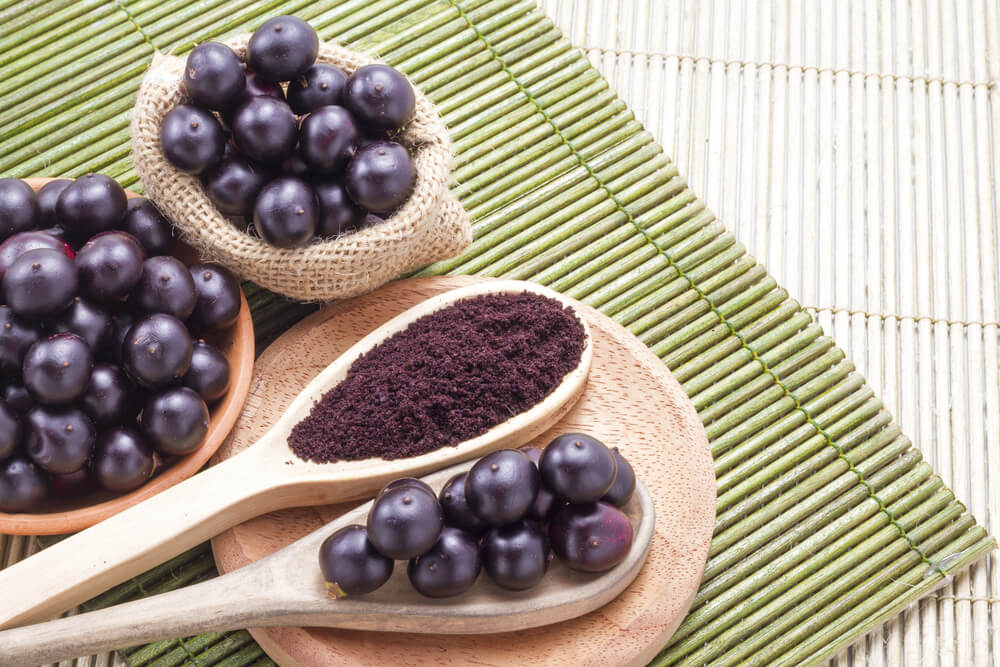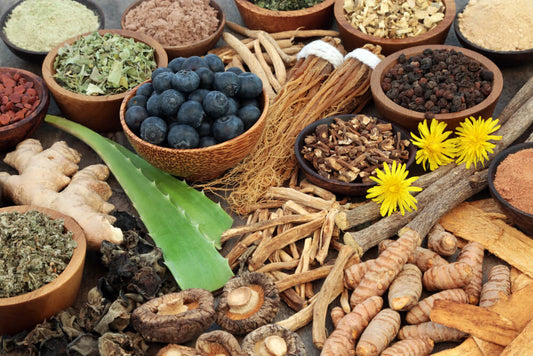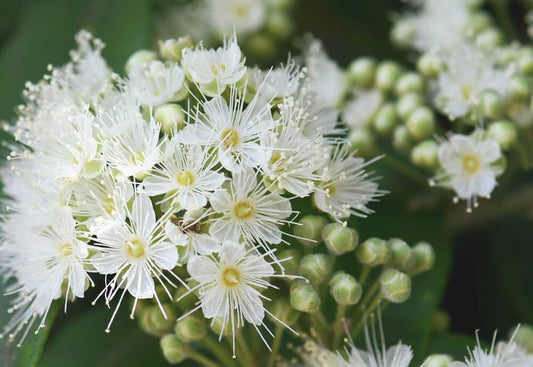
Top 3 Health Benefits of Acai Berries
Over the past decade acai berries have somewhat skyrocketed into popularity and for good reason too; this South American fruit has been touted a superfood because of its immensely high nutritional value.
Before you go and make yourself an acai berry food bowl worthy of an Instagram post, find out if this wonder fruit is worth all the hype.
Where Do Acai Berries Come From?
Sure, you’ve seen acai berries all over the internet already. Some would even say it’s a social media darling. Those food bowls that are piled high with berries and other nutritious food have become a sensation for health junkies all over the world.
Here’s a quick fact check about where those luscious berries come from:
Pronounced as as-SIGH-ee, the acai berry is harvested from the acai palm tree. The fruit looks like a hybrid of grape and blueberry and has a deep, dark purple colour.
Surprise: the acai berry isn’t a berry. It’s a drupe! Drupes are fruits with seeds or pits such as plums, cherries, and peaches. Acai palm trees grow in South America, specifically in the Amazonian rainforest. These palm trees can be found in abundance in countries such as Colombia, Brazil, Venezuela, and Ecuador.

Because they begin to ferment so rapidly, the acai berries you see in the supermarkets are hardly fresh. As soon as they are harvested, they need to be processed immediately to preserve their supposed nutritional benefits.
What Does the Acai Berry Taste Like?
If you haven’t gotten around to tasting an acai berry yet, you’re in for a treat - many people have claimed that it has a tart taste with notes of dark chocolate.
This observation isn’t surprising as the acai berry and the cacao bean (where delicious chocolate comes from) are both loaded with a chemical called polyphenols. This might be a plausible explanation for the similarity in taste.
Why Are Acai Berries Expensive?
Acai berries aren’t as affordable as other fruits in your local grocery store because of the process of preserving it as soon as it is harvested. Most of the time these berries are freeze-dried or turned into a puree. As mentioned before, preserving it within 24 hours is crucial since it helps lock in the nutrients (which is found in its skin and pulp) and makes transporting it much easier. Many enjoy consuming it in a capsule or powder form for its convenience.
Should I Add Acai Berries To My Diet?
Natural food of any kind that possesses some sort of nutritional value should always be considered to be a part of a well-balanced diet.
If you are still undecided about whether adding acai berries to your daily food intake is a go or a no, take a look at some of the noted health benefits that many people have observed while eating acai berries:
Healthier Skin
Free radicals are naturally found in our bodies. Technically they are unstable molecules that can wreak havoc to other healthy cells, causing damage and possibly illness. They form as a result of a natural metabolic process.
Our bodies didn’t have any issues about free radicals when we were younger; it could easily get rid of it and you’d be none the wiser. But like most things, aging can deter your body’s ability to remove free radicals, along with constant exposure to things such as smoking, excessive drinking, eating junk food, and too much sun exposure.

This is where antioxidants come in handy because our bodies constantly need it to help repair skin cells, among other things.
In a recent study released by Toxicological Research, this wonder fruit has the potential to help wounds heal faster. This is most likely due to its polyphenolic and anthocyanin content, both of which have been observed to improve skin collagen and elastin.
Improved Gut Health
Acai berries are not only full of antioxidants, they are also very fibre-rich. As you may know, fibre is essential for a healthy tummy.
In 2017 a study published in Food Chemistry stated that it had looked into how acai berries affect the digestive tract. Part of the study followed the acai berries as they were eaten and observed the way polyphenols travel during digestion. Surprisingly around half of it ended up in the colon -- the end of the digestive tract -- which seems to point out that acai berries may act as a prebiotic that feeds your gut with good bacteria.
A Sharper Brain
Acai berries might provide some protection against common neurological diseases. This is due to polyphenols.
One of the key proteins that aid the development of Alzheimer’s disease is beta amyloids and in an in-vitro study conducted in 2017 observed that acai berry seem to have provided a sort of barrier against the build-up of beta amyloids.
Beta amyloids group together and block the brain’s pathways. Because of the blockage, brain cells don’t get to communicate with each other properly. This causes inflammation in the brain that leads brain cells to die.
Acai berries appear to help with the brain’s housekeeping process called autophagy. The brain cleans itself by getting rid of old brain cells or those that are toxic and acai berries assist in this neural activity.

Superfoods Australia: The Best Source For Acai Berries
Adding this superfood into your daily food intake should never be a question of why but rather of when. Superfoods Australia offers freeze-dried acai berry powder, acai berry powder 4:1, and acai berry 10:1, all of which have been sourced only from the best suppliers.
Join our community and get 10% off your first order!













